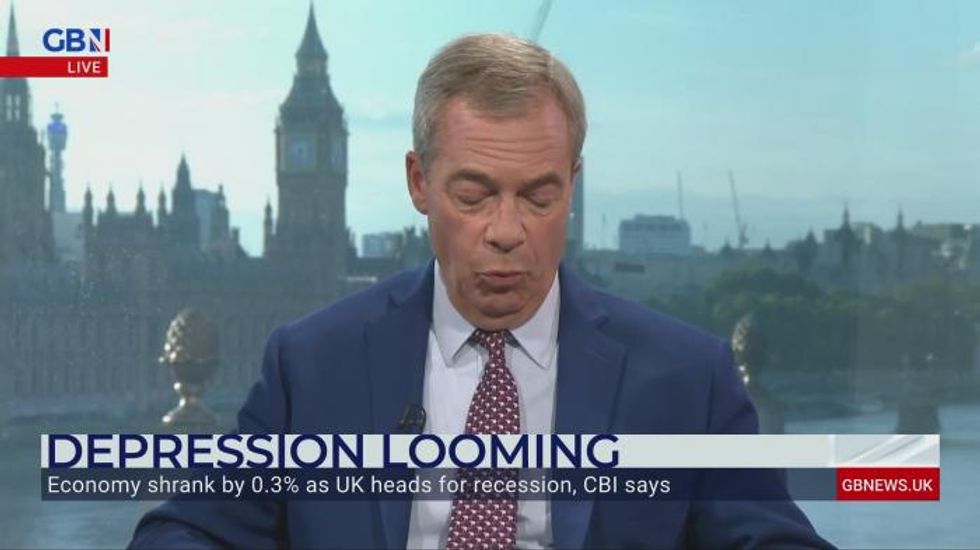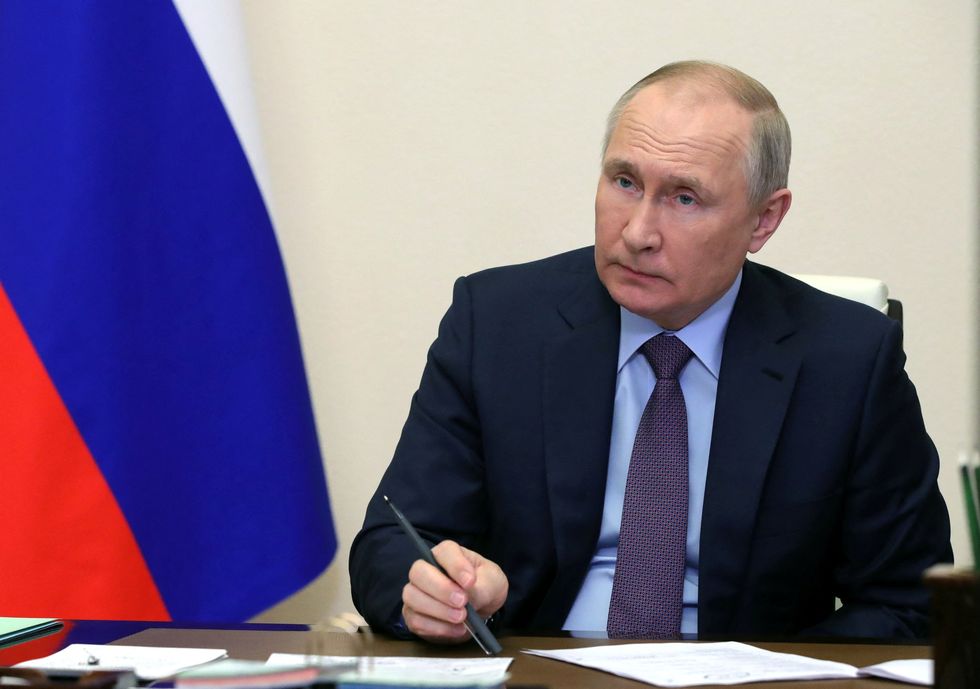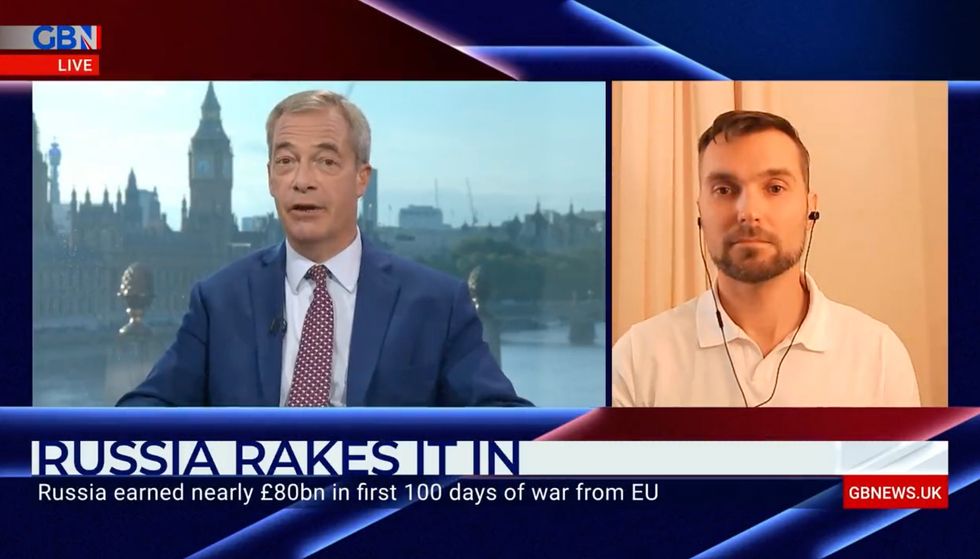The discussion follows claims that Russia made nearly £80billion from fossil fuel exports in the first 100 days of the Ukraine war
Don't Miss
Most Read
Trending on GB News
Lauri Myllyvirta, Lead Analyst at the Centre for Research on Energy and Clean Air, said Putin "doesn't intend to stop in Ukraine" following reports that Russia reaped over £80billion from fossil fuel sales in the first 100 days of the war.
In an exclusive interview with GB News presenter Nigel Farage, Mr Myllyvirta was probed on whether EU countries were actually paying Russia more than they were before the war began.
Mr Myllyvirta replied stating how Russian oil is trading at a discount of 30 percent compared with oil from other sources, with the EU ban set to "dig in over the next sixth months".
The Russian government has reportedly earned around £80bn in fossil fuel exports in the first 100 days of war
SPUTNIK
Moving on to the threat from the Russian President to Baltic states, Mr Myllyvirta stated how people in Poland and Finland believe that "he [Putin] doesn't intend to stop in Ukraine".
Recent figures have revealed that in the first 100 days of war in Ukraine, Russia accumulated around £80bn in revenue from fossil fuels.
Despite efforts from countries across Europe to deter dependency on fossil fuel from the country, the profits have financed the continuing war in Ukraine.
China became the largest importer of Russian fuel, importing around £12.6bn worth of fossil fuels over the 100 days.
According to a report by the Centre for Research on Energy and Clean Air (CREA), the EU received 61 percent of Russia's fossil fuel exports.
Poland and the US made the largest impact on Russia's income by dramatically reducing imports, along with countries like Lithuania, Finland and Estonia.
According to CREA's research, India, France, China, the United Arab Emirates and Saudi Arabia all increased imports, with India buying 18 percent of Russia's crude oil exports, and France the largest buyer of discounted liquid natural gas and oil cargoes on the short-term market.
CREA, which focuses its studies environmental and air pollution issues, conducted its research by tracking cargo ships, shipping data, gas pipeline flows, and by estimating the value of imports using its own pricing models.
Nigel spoke to Lauri Myllyvirta, Lead Analyst at the Centre for Research on Energy and Clean Air
GB NEWS










